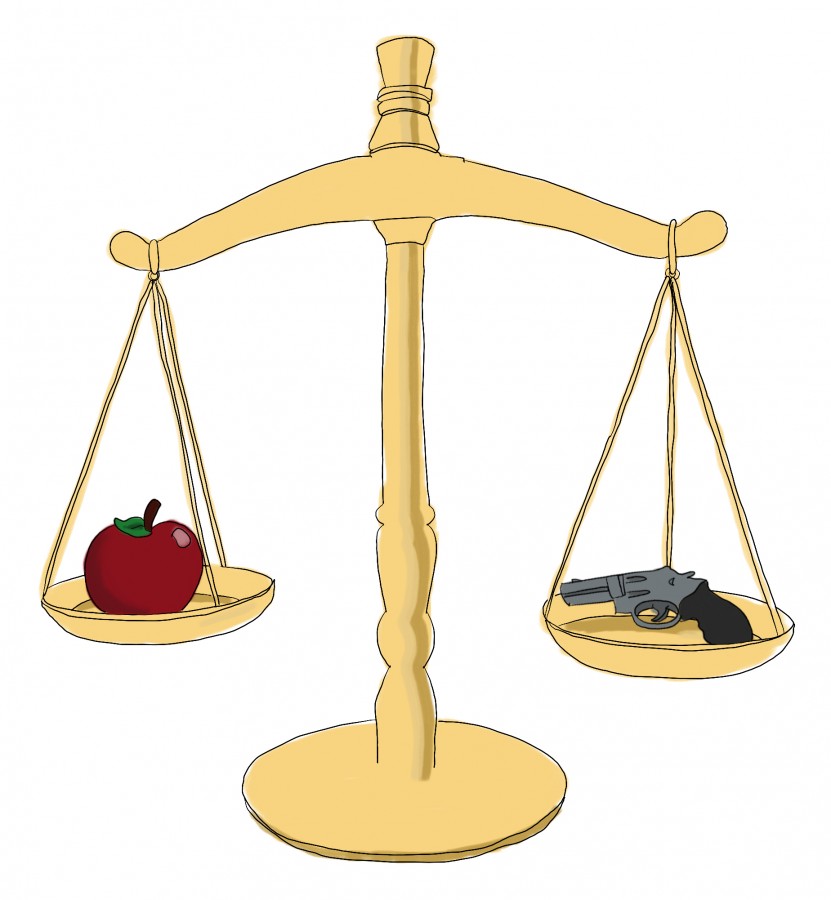Sandy Hook families sue weapons manufacturer for its role in December attack
On Dec. 14, 2012 a shooter entered Sandy Hook elementary school, killing 20 students and six educators. It was later discovered that the perpetrator let off 154 rounds of ammunition in less than five minutes using a Bushmaster XM15-E2S rifle.
The families of nine children and adults who died that day filed a wrongful death lawsuit against Freedom Group, Bushmaster’s parent company, for its weapon’s role in the shooting. Freedom Group is currently arguing for the dismissal of that case at Bridgeport’s Superior Court.
“All firearms, like all vehicles, are not created equal,” Josh Koskoff, a Bridgeport attorney currently representing the plaintiff, said. “The gun that was found on the floor of Vicki Soto’s classroom 10 — an AR-15 — was designed specifically for the United States military for the purposes of killing the most people in the shortest amount of time with the greatest efficiency.”
Freedom Group claims it is protected from this lawsuit by the 2005 federal Protection of Lawful Commerce in Arms Act (PLCAA), which grants gunmakers immunity from prosecution for the criminal misuse of its products.
The plaintiffs, however, are arguing that this case fits under the “negligent entrustment” exception to that law, claiming it was negligent of the company to sell and market a military-style weapon to civilians. They cite examples of certain advertising methods, including product placement of the weapon in video games such as “Call of Duty,” which the Sandy Hook shooter played regularly.
“No courts have embraced this theory,” according to Professor John Thomas from Quinnipiac University School of Law. “[It] seems inconsistent with the language of the PLCAA, which requires proof that the defendant knew or should have known that ‘the person’ receiving the gun was likely to use it to injure others.”
Christopher Scherban ’17 agrees with Thomas. “I am not saying that gun companies are good, far from it,” Scherban said, “but I do not see them being liable within today’s laws [which allow for] producing a gun for civilian purchase that really should not be legal, but is.”
Along with the question of this case’s mere viability are questions regarding how it relates to gun control.
According to Scott Wilson Sr., President of the Connecticut Citizens Defense League, this case may open the door for litigation against firearm manufacturers and retailers across the nation, effectively handicapping an entire industry.
“To hold an entire industry accountable because of the very unfortunate actions of some would start the spiral of the end of commerce in this country,” Wilson said. He compares this case to if the pressure cooker company had been sued for after the Boston bombing.
Max Hammer ’16, differed in his approach to the case. “I would like to see gun companies, such as Remington, be held responsible for how they market their products,” Hammer said. “But speaking practically, as well as based off of precedent, I am unsure how far liability can extend.”
Koskoff claims that this case does not have any larger implications where gun control is concerned. “Our case is limited to a certain weapon — the Ar-15 — sold by a certain company – Remington Arms,” Koskoff said.
Regardless, Thomas believes it is unlikely that the plaintiffs will prevail in this case. However, he does hope that the it shines a light on the Protection of Lawful Commerce in Arms Act (PLCAA).
“I think that the public should ask why the firearms industry has received immunization from liability in civil litigation when the automobile, pharmaceutical and power tool industries have not,” Thomas said.
Judge Barbara Bellis hopes to rule on dismissal within 60 days. If the case is not dismissed it will move toward trial onto the discovery phase.

It may have been a visceral feeling that instigated Claire Dinshaw ’17 to apply for a sports editor position her sophomore year, however, she refers...

















































